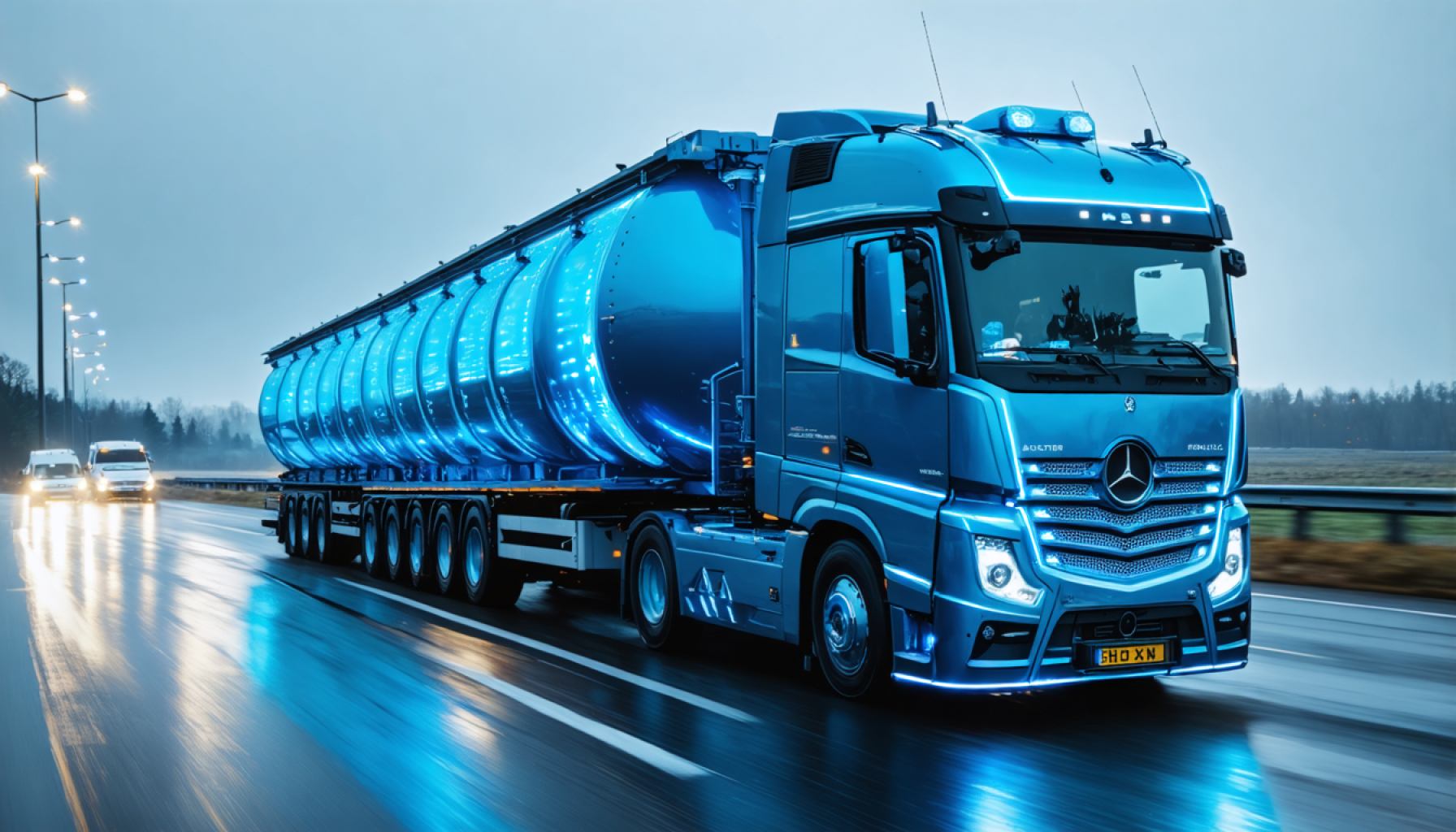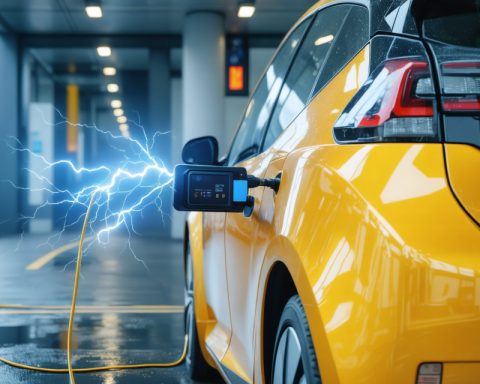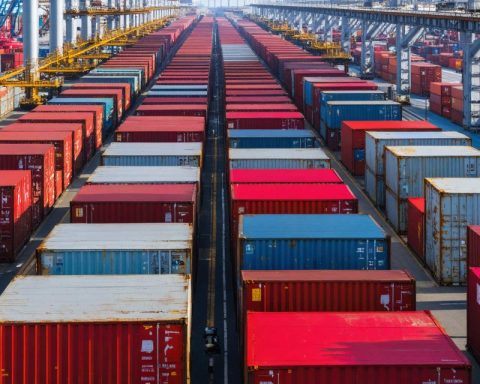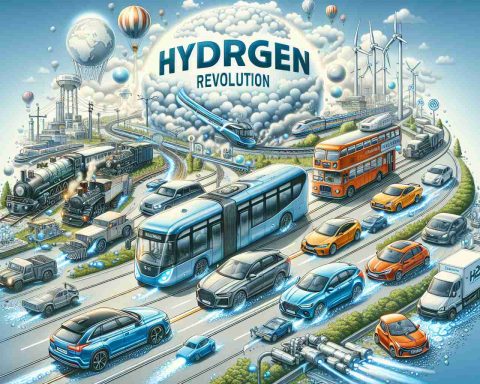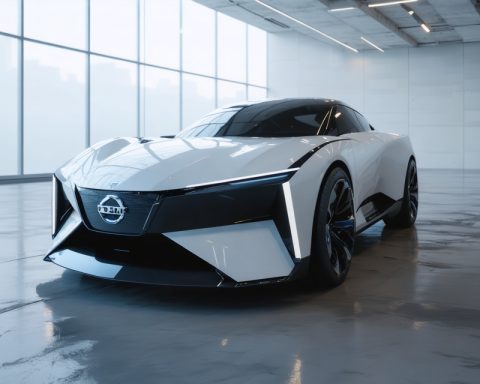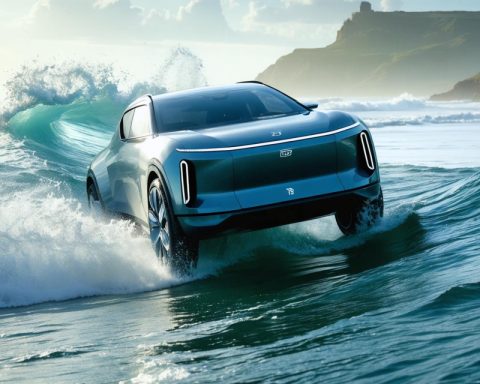- Daimler Truck is pioneering liquid hydrogen technology for sustainable freight transport, exemplified by successful tests with the Mercedes-Benz GenH2 Truck.
- The GenH2 Truck can travel over 1,000 kilometers on a single fill of liquid hydrogen, showcasing its practicality and efficiency compared to electric alternatives.
- Liquid hydrogen offers high energy density, enabling longer hauls without frequent stops, crucial for efficient freight operations.
- Daimler is supported by €226 million from the German Ministry and European Union investments, aiming to expand the hydrogen refueling infrastructure.
- Strategic partnerships with Shell, TotalEnergies, and BP aim to establish a network of hydrogen refueling stations across Europe.
- A small-scale deployment of 100 hydrogen trucks is planned for 2026, with the goal of mass production to enable carbon-neutral freight transport.
Amidst the towering challenges of climate change, a silent revolution is gathering momentum on European highways. Daimler Truck is rewriting the narrative of sustainable transport with its pioneering leap into liquid hydrogen technology. Imagine driving a behemoth of a truck, over 40 tons of sheer engineering, winding through the majestic yet treacherous Simplon Pass in Switzerland. For Daimler’s Mercedes-Benz GenH2 Truck, this isn’t just a vision—it’s the future of freight transport.
Daimler Truck has clocked an impressive 6,500 kilometers across the Swiss Alps, showcasing a feat that many deemed improbable. This is not just a test run; it is a bold declaration of intent. The liquid hydrogen powering these trucks is akin to capturing lightning in a bottle, stored at bone-chilling temperatures of -253°C. This technological marvel allows these trucks to traverse more than 1,000 kilometers on a single fill. Picture a refueling experience that mirrors today’s diesel systems while offering a sustainable alternative. For transport operators, the transition promises minimal disruption with maximum eco-benefits.
But what makes liquid hydrogen the jet fuel for tomorrow’s trucks? Its high energy density ensures longer hauls without the frequent pit stops typical of electric alternatives. In an era where efficiency is king, and every stop counts, liquid hydrogen emerges as a mercurial savior.
Braving icy slopes and challenging conditions, the GenH2 trucks have wielded their advanced components with grace. A symphony of innovations—optimized fuel cells, cryogenic tanks, and e-axles—conducts an eco-efficient performance under the guidance of Daimler’s Predictive Powertrain Controls. It’s a dance of technology, where real-time data dictates power usage, seamlessly adapting to the rugged terrain.
Daimler’s ambitions stretch beyond technical wizardry. Enabled by a €226 million pledge from the German Ministry for Digital and Transport, alongside European Union investments, this initiative is not just a vehicle project; it’s a movement. Leading the charge in Europe with strategic partnerships with Shell, TotalEnergies, and BP, Daimler advocates for an expansive network of hydrogen refueling stations. This move sets a crucial foundation for sustained green transport across the continent.
As freight trucks remain one of the largest culprits of air pollution, Daimler’s approach offers a glimmer of hope. By 2026, a small-scale deployment of 100 hydrogen trucks is slated to hit the roads. With infrastructure and policy aligning in harmony, mass production promises to follow.
While obstacles, particularly regarding cost, remain formidable, Daimler’s journey is a beacon of what’s possible when innovation marries environmental stewardship. The logistics industry stands at a turning point, ready to embrace an era where profitability does not come at the planet’s expense. As liquid hydrogen technology advances, the tantalizing vision of a carbon-neutral transport sector inches closer to reality, offering a testament to human ingenuity and resilience in the face of environmental adversity. This development signals a new chapter, where logistics and sustainability co-author a compelling story of transformation.
Revolutionizing Freight Transport: How Liquid Hydrogen Trucks Are Reshaping the Future
What is Liquid Hydrogen, and Why is it a Game Changer?
Liquid hydrogen is a transformative technology in the context of eco-friendly transportation. With a high energy density, it offers longer travel ranges than traditional battery electric vehicles, making it ideal for long-haul freight transport. Unlike compressed hydrogen gas, liquid hydrogen is stored at extremely low temperatures (-253°C), allowing more hydrogen to be stored in the same volume, thus extending the distance trucks can travel on a single fill.
Key Features of Daimler’s Mercedes-Benz GenH2 Truck
– Advanced Fuel Cells: The GenH2 Truck is equipped with optimized fuel cells that efficiently convert hydrogen into electricity, driving the vehicle’s powerful e-axles.
– Cryogenic Tanks: These tanks store liquid hydrogen at cryogenic temperatures, maintaining its liquid state and ensuring high-density energy storage.
– Predictive Powertrain Controls: Utilizing real-time data, these controls adjust power usage to optimize performance and efficiency in varying terrain conditions, such as the challenging Simplon Pass in Switzerland.
– Compatibility with Diesel Refueling Infrastructure: The refueling process mirrors that of traditional diesel systems, minimizing the transition barriers for transport operators.
Potential Challenges and Limitations
While promising, the liquid hydrogen technology faces several challenges:
– Cost: The production and storage of liquid hydrogen are currently more expensive than diesel and even some electric alternatives.
– Infrastructure: A widespread, accessible network of hydrogen refueling stations is crucial for mass adoption. This requires considerable investment and coordination among industry players and governments.
Market Forecast & Industry Trends
The global hydrogen fuel cell vehicle market is poised for growth, driven by increasing demand for sustainable transport solutions and supportive government policies. According to industry estimates, the market size could surpass USD 300 billion by 2050 as technology matures and costs decrease.
How Daimler’s Initiative Impacts the Logistics Industry
This initiative by Daimler Truck is a significant step toward cleaner, carbon-neutral freight transport. As a forward-thinking response to climate change, it aligns with global efforts to reduce greenhouse gas emissions and offers a viable path to decarbonizing the logistics sector.
Insights & Predictions
– Policy Support: Continued subsidies and tax incentives from governments will be critical to lowering costs and fostering growth in the hydrogen sector.
– Technological Improvements: As technology advances, expect higher efficiency and lower storage costs, making hydrogen trucks more competitive with traditional diesel vehicles.
Quick Tips for Transport Operators
– Stay Informed: Keep abreast of new policies and technological advancements in hydrogen fuel cell technology.
– Explore Partnerships: Collaborate with manufacturers, like Daimler, and refueling infrastructure developers to be at the forefront of this transformative shift.
– Plan Investments: Consider gradual fleet transitions to capitalize on the efficiency and long-term savings offered by hydrogen technology.
For further insights into Daimler Truck’s groundbreaking innovations, you can explore their global initiatives and updates on Daimler Truck’s official site.
Conclusion
Daimler Truck’s commitment to liquid hydrogen technology is not merely about developing a new type of truck; it’s about setting a sustainable precedent in the logistics industry. By marrying profitability with environmental responsibility, Daimler is laying the groundwork for a greener future. As costs decline and refueling infrastructure expands, the liquid hydrogen revolution is set to redefine freight transport worldwide.
